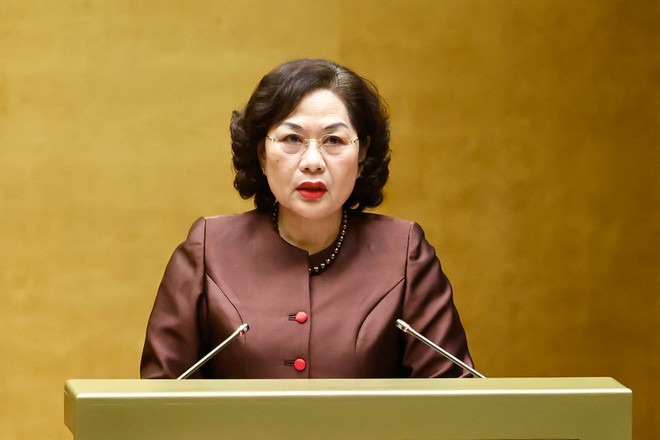HCMC — The State Bank of Vietnam (SBV) has proposed that it be granted authority to approve special loans at zero interest rates, shifting the decision-making power from the prime minister to the central bank.
Governor Nguyen Thi Hong of the SBV presented the proposal to the National Assembly on May 20, as part of a draft amendment to the Law on Credit Institutions, reported the Vietnam News Agency.
Hong said the volume of non-performing loans (NPLs) in the banking system remains high and is rising, putting significant pressure on the sector. To better manage liquidity risks, she proposed that the SBV be authorized to approve special loans, whether or not collateral is provided.
Currently, such decisions require approval from the prime minister.
Under the draft law, Article 193 would be revised to allow the SBV to make such lending decisions, instead of the prime minister. The SBV Governor would also set the terms for collateral. These special liquidity support loans would carry a 0% annual interest rate.
The draft law includes new provisions on bad debt handling and asset seizure. Article 198a would allow credit institutions and debt trading firms to repossess collateral if the loan agreement includes seizure terms.
Article 198b would permit the seizure and disposal of collateral under civil enforcement procedures, provided the agreement was signed after a court ruling or with lender approval.
Article 198c would require legal authorities to return seized collateral after completing proceedings, if requested by lenders and if the return does not affect the case or enforcement.
A transitional clause would also be added to ensure that special loan decisions made by the prime minister or SBV governor prior to the law’s enactment remain valid. It would also allow pending enforcement procedures involving collateral for bad debts to continue under existing civil enforcement laws.
The National Assembly’s Economic and Financial Committee supported the proposed transfer of authority but called for clearer lending criteria, conditions, and risk controls.
Some lawmakers raised concerns about potential misuse of asset seizure powers and urged safeguards to prevent lenders from relaxing lending standards.
The committee also called for clearer rules on the role of local authorities and police in enforcing collateral repossession and urged the Government to consider third-party interests in civil enforcement cases.









